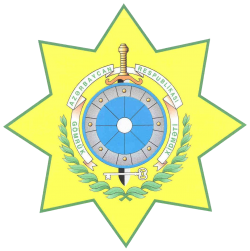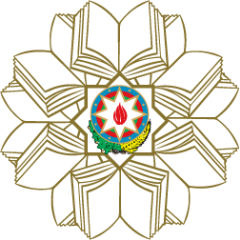Home
Open Science Policy
Open Science Policy
Academy of the State Customs Committee of the Republic of Azerbaijan (ASCCA)
Open Science Policy
Academy of the State Customs Committee of the Republic of Azerbaijan (ASCCA)
1. Preamble
The Academy of the State Customs Committee of the Republic of Azerbaijan (ASCCA) is dedicated to advancing customs research, education, and innovation. ASCCA plays a pivotal role in training professionals, conducting cutting-edge customs-focused research, and fostering international scientific cooperation. This Open Science Policy is designed to align ASCCA’s efforts to adjust its research and science policy with the best international practices, while addressing the specific operational needs of the State Customs Committee (SCC) and ensuring that ASCCA’s outputs serve both Azerbaijan and the international community.
Starting in January 2025, ASCA will establish a Customs Research Center, an Innovation and Incubation Center, and an International Cooperation and Projects Office. These entities will collaboratively implement this policy under the guidance of ASCCA’s Rectorate, as well as the cooperation with the ASCCA Library and individual academic departments.
This Open Science Policy document is based on the ASCCA’s Research Policy.
2. Jurisdiction and effect of policy
This policy applies to all research activities, publications, and data created under ASCCA’s auspices, with exceptions for projects specifically commissioned by the SCC. Such projects will be governed by SCC’s established rules, orders, and decrees.
The Customs Research Center at ASCCA will oversee the implementation of this policy, ensuring alignment with the ASCCA Charter and the Decision on the Establishment of the ASCCA Open Science Policy. All activities will reflect ASCCA’s commitment to Open Science while respecting the national legislation of the Republic of Azerbaijan.
This policy will only enter into force, following an approval by ASCCA’s Scientific Council and an endorsement by the SCC.
3. Rights, responsibilities, and duties
3.1 ASCCA responsibilities
ASCCA, through its Customs Research Center, will ensure the successful implementation of Open Science principles tailored to the Academy’s unique context.
Policy coordination: ASCCA’s Customs Research Center will lead policy implementation, working in close collaboration with the ASCCA’s Rectorate, individual academic departments, Library, and International Cooperation and Projects Office.
Ethics oversight: ASCCA will establish a Research Ethics Committee under the Customs Research Center, chaired by the Rector, to uphold ethical standards in Open Science practices.
Infrastructure development: ASCCA will develop and maintain an advanced infrastructure, including an institutional repository and data system, to support its Open Science activities.
Monitoring and reporting: ASCCA will regularly evaluate compliance with this policy, ensuring adherence to both the international Open Science principles and SCC-specific and the other national legal requirements.
3.2 Researcher responsibilities
ASCCA-affiliated researchers, including faculty and students, must adhere to this policy in all their activities, ensuring alignment with ASCCA’s objectives:
Ethical compliance: Researchers at ASCCA must follow guidelines set by the Research Ethics Committee and Customs Research Center.
Data management: All ASCCA researchers must prepare Data Management Plans (DMPs) for their projects, addressing data security and accessibility.
Collaboration: Researchers must actively coordinate with ASCCA’s Customs Research Center and other relevant departments to ensure that their work aligns with Open Science standards.
3.3 Open access to publications
ASCCA researchers are required to deposit their publications in the ASCCA Institutional Repository to ensure accessibility and visibility, while adhering to SCC-related and other legal confidentiality requirements.
Metadata sharing: For publications subject to embargo or restrictions, ASCCA researchers must ensure that metadata is openly accessible to enhance discoverability.
Relevance with Customs and other areas: ASCCA researchers must ensure their publications highlight the Academy’s contributions and reflect customs-specific and other insights. However, the relevance is not limited to the domain of Customs but also covers the other academic and other directions at ASCCA.
4. Open access to research data
ASCCA is committed to promoting the secure and ethical sharing of research data while respecting the confidentiality of customs-related information:
• Data storage: ASCCA researchers must deposit research data in repositories designated by ASCCA’s Customs Research Center.
• Confidential data handling: ASCCA requires that sensitive data restricted by SCC policies be accompanied by detailed metadata to ensure traceability and compliance.
• FAIR principles adaptation: All data produced under ASCCA must adhere to the principles of findability, accessibility, interoperability, and reusability (FAIR), customized for customs research contexts.
5. Open science practices
ASCCA actively supports Open Science practices that address the unique challenges of customs-focused research:
• Innovative projects: The Innovation and Incubation Center at ASCCA will spearhead projects that tackle customs-related challenges using Open Science methodologies.
• Collaborative initiatives: ASCCA’s Customs Research Center will encourage cross-border research collaborations to advance customs knowledge.
• Educational resources: ASCCA will develop Open Educational Resources (OER) tailored for customs officers and stakeholders to improve skills and knowledge.
6. Infrastructure
ASCCA will build and maintain robust infrastructure to support its Open Science goals, ensuring compliance with international standards and addressing customs-specific needs as follows:
• Repository standards: The ASCCA Institutional Repository will be designed to meet global standards such as OpenAIRE compatibility, while integrating features required for customs research.
• Technology and innovation: ASCCA’s Innovation and Incubation Center will develop advanced tools and platforms to facilitate data sharing and research.
7. Research assessment and evaluation
ASCCA will create a research assessment framework that prioritizes the quality and relevance of customs-focused research while encouraging adherence to Open Science principles. This framework will consider interdisciplinary approaches and accommodate researchers at different career stages.
8. Training
ASCCA will deliver comprehensive training programs to equip its researchers and students with the skills needed for Open Science:
• Tailored modules: ASCCA’s Customs Research Center will design training sessions focusing on ethical data handling, publication practices, and compliance with SCC and international standards.
• Integration into education: Open Science practices will be embedded in ASCCA’s academic curricula to prepare future customs professionals for transparent and ethical research.
9. Validity of the policy
This policy will be reviewed every two years by ASCCA’s Scientific Council and Customs Research Center in consultation with the Rectorate to ensure it remains relevant and effective.
Annex: Definitions
Key terms include the following:
• ASCCA-specific Open Access: A framework for making publications freely available while considering customs-specific confidentiality and legal requirements.
• Customs Research Center: An ASCCA entity responsible for implementing this policy and coordinating research activities.
• Data Management Plan (DMP): A structured plan for managing research data, addressing security, and ensuring accessibility.
1Prepared in the framework of the EU-funded Erasmus+ DIRNA project (2023-2026) coordinated by Khazar University, Azerbaijan.




